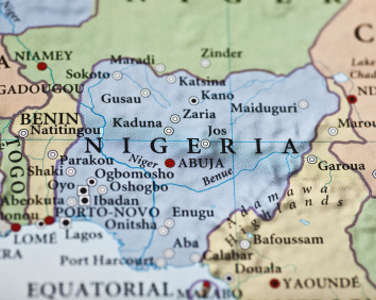Nigerian Christians Decry Police Inaction in Church Burnings
 The head of the Christian Association of Nigeria (CAN) in Zamfara state told Compass Direct News that he was disappointed in the lack of response by state police to recent church burnings by Muslim youths.
The head of the Christian Association of Nigeria (CAN) in Zamfara state told Compass Direct News that he was disappointed in the lack of response by state police to recent church burnings by Muslim youths.
“It is unfortunate that there has been no response from the police, and even the state governor has refused to meet with us,” said the acting state chairman of CAN, the Rev. Edwin Okpara.
The Redeemed Christian Church of God building in Tudun Wada was partly burnt on Jan. 25, and Christian Faith Bible church and the Living Faith Foundation Chapel, both in Gusau, were partly burnt in attacks on Jan. 20 and 24 respectively. Zamfara state, one of the predominantly Muslim states in northern Nigeria, was the first in the country to implement Islamic law (sharia).
In the petition dated Jan. 26, CAN stated that the church burnings came in the aftermath of “a grand plot to unleash mayhem on churches and Christians in the state due to the religious clash in Jos, Plateau state.”
The association alleged that those who attacked the Zamfara churches were emboldened because officials made no serious move to arrest those who carried out the Jos attacks. Two pastors and 46 other Christians were killed in the outbreak of violence in Jos on Jan. 17, triggered when Muslim youths attacked a Catholic church; 10 church buildings were burned, and police estimated more than 300 lives were lost in the clash.
“We are seriously disturbed by the restlessness and panic these attacks have created among the Christian community and ask that every necessary and urgent step be taken by your command to secure the lives of both Christians and Muslims in the state as citizens of Nigeria,” the CAN petition states. “Despite these attacks and provocation, the church and Christians as peaceful people have remained calm and have no plans to retaliate, but [we are] appealing to you to act and protect our interest.”
The State Police Command was not available for comment on the CAN request.
Okpara lamented that Christians in the state have been suffering in silence with little means of drawing attention to their plight.
“The level of persecution in Zamfara is alarming, more than in any other state in the country,” Okpara said. “Not even in Sokoto or Kano are Christians subjected to the kind of discrimination we are subjected to.”
He said it was impossible to get land to build churches in Zamfara state; Christians are forced to sign an understanding binding them to refrain from using land in the state for church buildings.
“We are more or less operating underground churches in the state,” he said. “The present state government has turned out to be more anti-Christian than the former government in the state, which introduced the sharia law.”
Leaders of the Pentecostal Fellowship of Nigeria (PFN) on Feb. 23 decried cases of persecution and discrimination against Christians and called on the federal government to put an end to it. Virtually all churches in predominantly Muslim northern Nigeria have been refused certificates of occupancy for their buildings, they said.
“There seems to be an unwritten law that churches are not welcomed in the northern part of the country,” the PFN leaders noted in a statement.














































